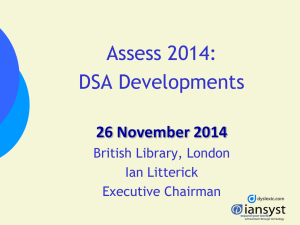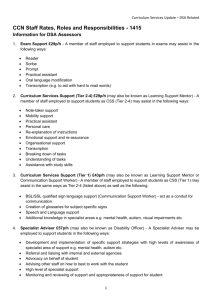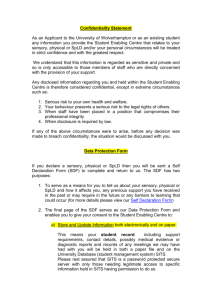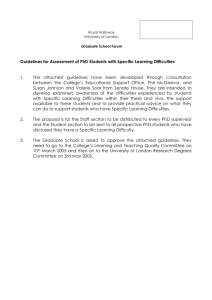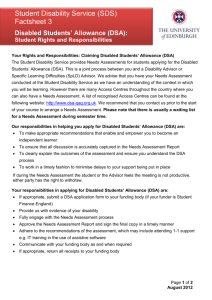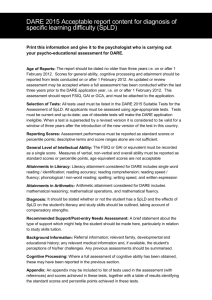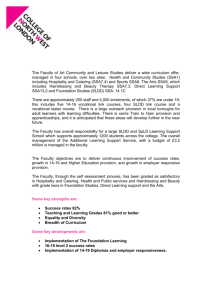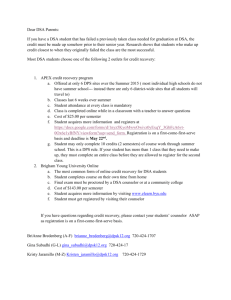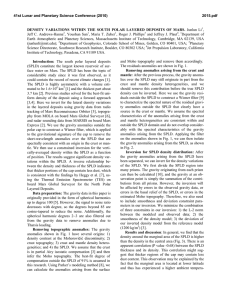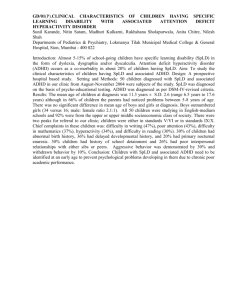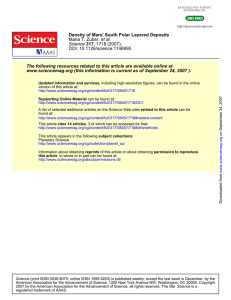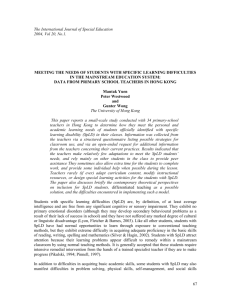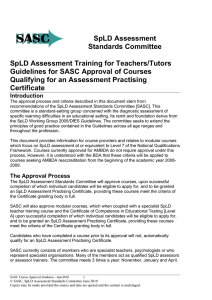Diagnostic Assessment Report Proforma
advertisement
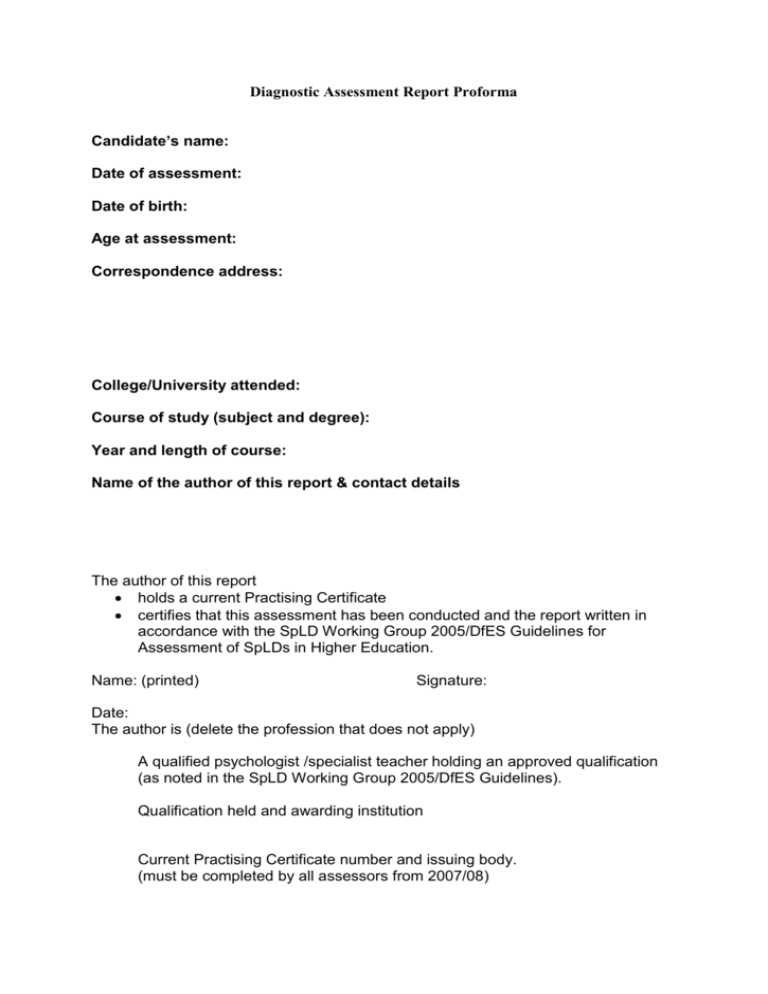
Diagnostic Assessment Report Proforma Candidate’s name: Date of assessment: Date of birth: Age at assessment: Correspondence address: College/University attended: Course of study (subject and degree): Year and length of course: Name of the author of this report & contact details The author of this report holds a current Practising Certificate certifies that this assessment has been conducted and the report written in accordance with the SpLD Working Group 2005/DfES Guidelines for Assessment of SpLDs in Higher Education. Name: (printed) Signature: Date: The author is (delete the profession that does not apply) A qualified psychologist /specialist teacher holding an approved qualification (as noted in the SpLD Working Group 2005/DfES Guidelines). Qualification held and awarding institution Current Practising Certificate number and issuing body. (must be completed by all assessors from 2007/08) Summary Diagnostic findings should be stated, with summary of evidence on which this is based; outline of effects of SpLD on student’s literacy and study skills, taking account of compensatory strengths. There should be a clear statement as to whether or not, according to performance at assessment, taking account of and incorporating any background information, the student has a specific learning difficulty, and if the student has been found to be dyslexic this should be specified. Background information Referral information; family, developmental, educational and language history; relevant medical information; summaries of previous assessment reports; student's perceptions of his/her difficulties and motivation for assessment, previous educational support, examination access arrangements. Test conditions Conditions in test setting and his/her response to these factors may influence the students’ performance. Provide a brief statement about environment, comfort, interruptions as well as health of student, attention, motivation, anxiety and his/her response to these or any other factors that might have affected the results. Assessment (Reports of performance in individual tests should be prefaced by a brief statement about the attainment or cognitive function which the test is designed to examine and a description of the requirements of the task for the student.) Attainments in Literacy Reading Single words (a standardised single word reading test); non-word reading; text reading (both oral and silent) and reading comprehension; qualitative analysis of errors; evidence of strategies such as whole word recognition; decoding; fluency; reading speed (oral and silent) and ability to extract information from text; summary of student’s reading profile. Spelling A standardised single word spelling test; free writing; dictation of sentences (optional). Qualitative analysis of errors. Writing Free writing analysed to cover vocabulary, ability to write grammatically, complexity of sentence structures, coherence of writing, writing speed and legibility of handwriting. Handwriting speed for copying should be reported separately. Underlying Ability Information about both verbal and non-verbal ability; observations about test performance; discussion of profile of scores highlighting any significant discrepancies. Cognitive Processing A range of tests selected by the assessor to probe relevant aspects of cognitive functioning: tests of working memory (if these have not been reported in the section Underlying Ability); tests of phonological processing (phonological awareness and phonological processing speed). Tests should be reported under separate headings. Other relevant information Performance in a range of other tests may be reported here. These may include tests of competence in certain aspects of numeracy or tests of motor control. Assessors may additionally consider it appropriate to screen for disorders such as Meares Irlen Syndrome, or to use recognised checklists to identify whether a student might show signs of dyspraxia/DCD or ADD. The results of any such screening procedures should be reported in this section. Conclusion Recommended Support A brief statement about the type of support which might help the student should be made here, particularly in relation to study skills tuition. Diagnosticians should also bear in mind that students will have a full assessment of their needs for the purposes of DSA, and the final recommendations for support will be made through that assessment, although recommendations from the diagnostician should be used to inform the academic staff and those who undertake a later assessment of the student’s course related needs which will identify the appropriate DSA support for the Higher Education course. If recommendations are made about examination arrangements it should be borne in mind that universities may have their own systems for supporting students with SpLD. Information about the procedure for applying for the DSA can also be given here. The author of this report: holds a current Practising Certificate (see cover sheet) certifies that this assessment has been conducted and the report written in accordance with the SpLD Working Group 2005/DfES Guidelines for Assessment of SpLDs in Higher Education Name (please print): Date: Signature: Appendix Tests used in assessment and summary of scores achieved.

